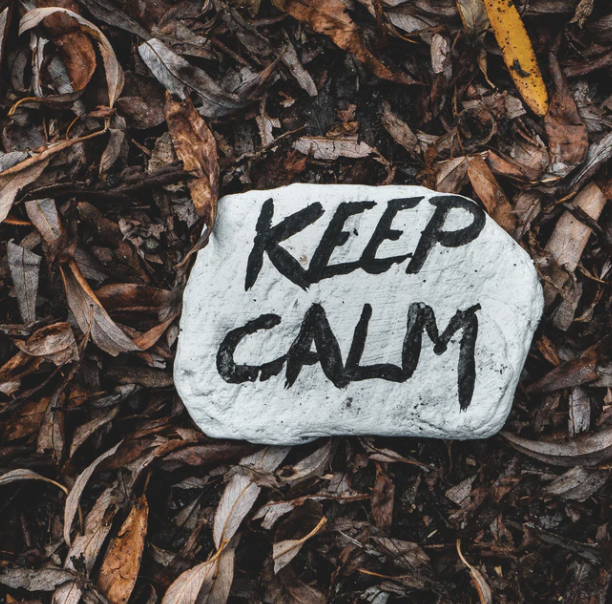Time Anxiety Is the Most Pressing Problem of Our Age ⌛️

Time is running out, and you should be doing something about it … but you don’t know what.
That’s what this post is about: something called time anxiety. I’ve been dealing with it for years, and maybe you have, too—even if you’ve never heard the name.
I believe that time anxiety is the most pressing problem of the modern world. Once you work your way through Maslow’s hierarchy and your basic needs are taken care of, you start worrying about time—and you never stop.
- You worry that time is passing you by
- You worry you’re too late or you missed your chance for something important
- You worry there’s something you should be doing right now, but you’re not sure what it is
If you don’t relate to this feeling, consider yourself fortunate. Many people feel this way all the time. And it’s not just a conceptual idea, it’s truly a felt sense. You can experience physical symptoms, even real distress, from time anxiety.
This feeling is often identified as FOMO, but time anxiety is different. FOMO is focused on the present (“Something is happening without me!”), whereas time anxiety surfaces around all three parts of time: past, present, and future.
You experience regret about the past, a lack of clarity about the future, and general disorganization in the present.
The sense of disorganization presents itself even in people who are generally accomplished or “productive.” In fact, time anxiety may be even more common for these people. Part of the reason they’re working so hard—yet frequently changing their focus and getting tripped up—is because they aren’t sure what they should be doing!
In other words: the same people you see as being confident and skillful may actually feel hesitant and clumsy.
This, in a nutshell, is time anxiety. We know we should live as though we’re running out of time (because we are), but we don’t always know how. Therefore, we become anxious.
What can be done—there any solutions? This is a topic I’m actively studying, and I don’t think there’s a simple answer. Still, here’s what I’ve got so far.

First, never underestimate the power of self-awareness.
Once you understand what the problem is—or even once you have a general understanding that there is this thing that affects you—reminding yourself of this basic knowledge can help.
Many people with ADD/ADHD (or Asperger’s, Bipolar, or any number of other conditions) have clear memories of being diagnosed for the first time. Being diagnosed is like being seen or recognized. You realize that the thing you’re experiencing has a name. It has common, identifiable characteristics. There are other people who’ve had similar experiences as you—there are keys that can be discovered.
I mention ADD specifically because it’s the condition I’m most familiar with. I was first diagnosed as a child, but I didn’t seek treatment as an adult until I was thirty-five and struggling to write a book. Once I started actively managing my ADD, I was able to finish the book and also be much more focused all-around.
The list of conditions doesn’t need to be comprised solely of disorders. Understanding your personality type and characteristics also brings some relief. If you’re an introvert, for example, you know that having lots of meetings tires you out, so you learn to plan for them.
So too is it with time anxiety. Without a diagnosis—or at least, without naming it—you’re always at its mercy. With some understanding, you learn to cope, adjust, and maybe even thrive.
Second, be wary of quick fixes.
Beyond self-awareness, I think it’s important to be cautious when identifying “the answers.” People who struggle with time anxiety tend to be good at coming up with answers that make them feel better without creating much in the way of real change. (Perhaps that’s a long way of saying “Sometimes I come up with answers that make me feel better without changing much.”)
Time anxiety is not something you hack. It’s something you come to terms with.
No amount of improved to-do list apps will solve this problem. There is no bullet journal or magic method. You could invent an alarm clock that physically drags you out of bed two hours before sunrise and forces you to work even harder, but will you really be better off?
The rise of #StudyWeb on TikTok and YouTube fits this description perfectly. Millions of students want to study better, yet many of these same study connoisseurs are deeply worried about spending their time in the most efficient manner.
At the end of the day, this fact remains: there’s always more to do, and there’s never enough time.

Third, stop trying to “manage” time.
Becoming aware of time anxiety leads to another conclusion: our obsession with productivity and “time management” is misaligned. In fact, the whole field may be doing more harm than good!
Plenty of people have criticized the Getting Things Done crowd, but they tend to do so from a “do less” perspective. Their criticism, perhaps oversimplified, is “Live your life and don’t worry about being efficient.”
Of course, telling someone not to worry about something they are worrying about is not very helpful. Besides, what if you do want to improve—you want to do more and do it better?
The person who understands that is who I’m writing this long post for. You want to improve, but you feel stuck and you need more than a list of hacks to make progress.
In the end, time anxiety is a real problem—truly the most pressing problem of our modern age, at least for many for us. But it doesn’t need to be a crippling disease.
You can incorporate this understanding into your life and move forward, full of the knowledge that time is running out—and yet, there is still time now.
More to come…
###







